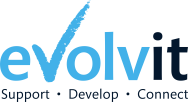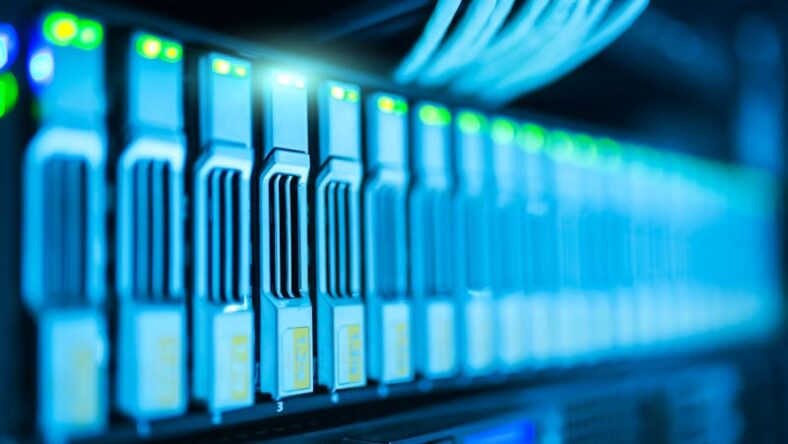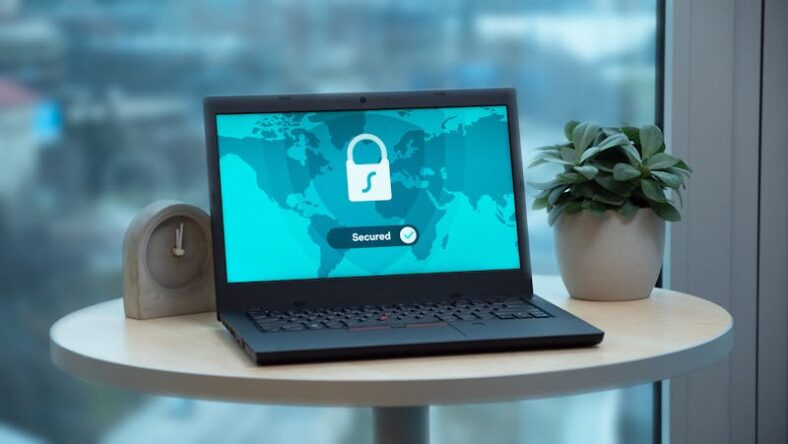What is a Hosted Desktop?
Also known as virtual desktops, a hosted desktop is a cloud based technology that allows you to run operating systems, computer applications, software, storage, and other functions of a physical desktop on a virtual machine from anywhere in the world.
How Does a Hosted Desktop Work?
Remote hosted desktops use virtualisation technology to separate the desktop environment from physical computers, moving them instead to data centres or servers.
These virtual desktops can be accessed using an Internet connection from “thin clients”, which are simple, diskless CPUs that can run remote hosted desktop sessions. Some examples include the Raspberry Pi or Dell’s Wyse models. Many modern smartphones and tablets can also capably support virtualised desktops.
While the concept of virtual desktops sounds cutting-edge, even older devices can run sessions, thanks to the remote data centres shouldering the burden of storage and doing most of the heavy computational lifting. Broadband speed will be your only real hurdle to fast processing, but with the increasing availability of 5G, fibre connectivity, and the advent of Wi-Fi 6E, this shouldn’t be an insurmountable problem for most modern businesses.
Why Use a Remote Hosted Desktop?
Remote hosted desktop services afford businesses the ultimate freedom and flexibility to work from anywhere in the world. Grow your business, work on projects, and attend to problems whenever and wherever.
Virtualised desktop environments can also remove the exorbitant capital required to buy and maintain individual software licences and hardware. Migrating to cloud desktops can net savings upwards of 30%. Many thin clients cost less than half of what you would pay for a traditional desktop.
About our Remote Hosted Desktop Service
Our fully-managed remote hosted desktop services include an Application Server and Active Directory Server as standard. Options for SQL Servers, additional storage or more application servers our flexible plan can produce a custom configuration for you.
We also provide Thin Client Hardware, should you require it, which will be sent to you pre-configured for convenient plug-and-play use. Should you need a more customised setup, we can offer you bespoke options tailored to meet your office requirements.
Security
At EvolvIT, we use state-of-the-art encryption and a multi-layer system that offers full redundancy right down to the network layer. Our Datacentre is located in the heart of Bristol, with a full redundancy DR setup with Azure should the worst happen. We use AES 128 and AES 256 encryption, which are impossible to break through brute force in a human timescale. Finally, traffic is filtered through separate firewalls to ensure maximum security.
Compatibility
Our remote desktop solutions are accessible for Windows, Mac, tablets, and smartphone users.
Scalability
Every business requires different solutions, depending on its size, services, and target market. At EvolvIT we offer a bespoke service, so we can create a network that will fit and scale with your business, whether for 10 or 100 users. All you need to do is let us know and we’ll make sure your remote desktop can adapt and scale when you need it to.
Support and Maintenance
With our team on your side, you don’t need to maintain your network on your own. Our service includes 24/7 monitoring and regular system updates. Our customer support team is always available for any issues you may encounter while you’re working. If you want to upgrade to our virtual IT support, we will attend to you onsite for servicing and hardware maintenance.
Backup and Data Restoration
Work from anywhere in the world on virtually any device, safe in the knowledge that your data is safe and backed up automatically. Our rolling backups allow you to restore some or all of your files from any backups from the past 14 days. These backups are taken every night, so you can recover any data you might lose due to human error or cyberattacks.
Benefits of Remote Desktop Service
Hosted desktop solutions are powerful technologies that can save companies a significant amount of money in upfront capital and hardware maintenance and upkeep. However, the same savings can be undercut if you choose to host your virtual desktops internally. There is little to be gained from eliminating the costs and complexities of managing a fleet of physical desktops, only to create new challenges with in-house data centres.
Working with a service provider allows businesses to enjoy the same flexibility, scalability, and security of hosted servers without getting mired in management and maintenance issues. This way, organisations can put more focus on core business tasks and less on troubleshooting IT.
Ease of use is another reason to switch over to virtual desktops. A remote hosted desktop isn’t some complicated, foreign piece of software. It’s your apps, your programs, and your operating system, just made available on any device with an internet connection. Employees typically don’t need any additional training beyond how to log into the portal and sessions can be initiated or ended in seconds.
IT spend is notoriously hard to predict. It’s easy to overspend and underutilise. Choosing to work with a service provider means a set number at the end of every month. There’s more visibility into where the budget is going, since costs are itemised into services. Reducing or increasing capacity is a matter of talking to your service provider, so you no longer have to procure new equipment yourself, or figure out how to recycle or repurpose the same equipment if you need to scale down.
Is a Hosted Desktop Secure?
Generally, yes. But as with any cloud-based software, threats are ever existent. Remote hosted desktops in particular present a tempting target for cybercriminals.
The security of your setup against these threats will heavily rely on your service provider and the measures they put in place. Fortunately, there are a myriad of protective protocols that can be coded into your remote hosted desktop infrastructure, from multi-factor authentication and access tokens to unbreakable encryption.
Virtual desktops are also more resilient against physical threats. Theft, device loss, and natural disasters are as considerable risks to data as malware. Remote hosted desktops do not store data locally. Sessions are protected by logins and can be arranged to terminate after a specific period of time, which means your network remains walled away should employees lose their phones or laptops. Data is kept in redundant, separate centres, which means that no flood, fire, or sudden power outage can wipe or corrupt your business data.





